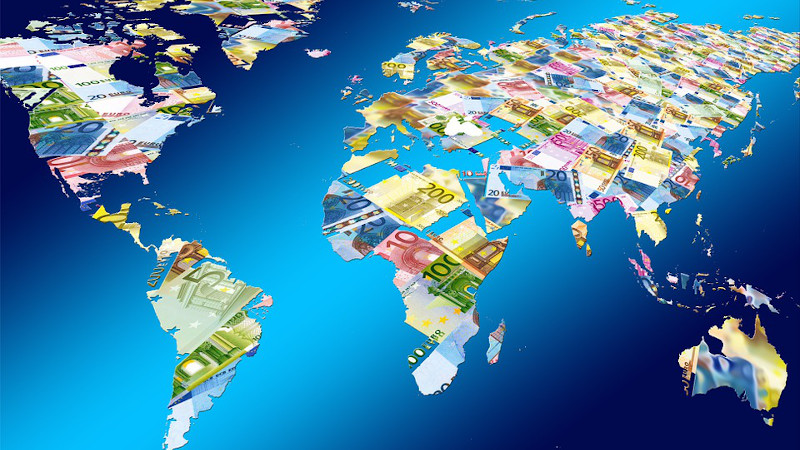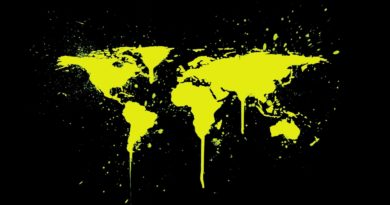Widening The Great Reset Dialogue: Diversifying Strategy Options – OpEd

At the 2020 World Economic Forum (WEF), a number of proponents led by The Prince Charles, Kristalina Georgieva, managing director of the International Monetary Fund (IMF), and Klaus Schwab, founder and CEO of the WEF unveiled a series of economic, environmental, and social arguments, which they termed The Great Reset.
The Great Reset is a series of ideas about rebuilding the world after the Covid crisis in a resilient, equitable, and sustainable manner. Proponents claim that a crisis like the Covid-19 pandemic has created an opportunity to rebuild society, correcting past mistakes, in an environmentally responsible way.
The Great Reset is primarily built upon the United Nations 2030 Sustainable Development Goals (SDG), a complex web of policies, under the categories of poverty, hunger, health, education, gender equality, clean water and sanitation, clean energy, employment and economic growth, innovation and infrastructure, inequality, sustainable cities and communities, responsible consumption and production, climate action, the environment, peace, justice and strong institutions, and partnerships. The Great Reset sees climate change model predictions as alarming, in need of drastic intervention to prevent a climate catastrophe. Proponents also see that innovation through the Industry 4.0, or fourth industrial revolution paradigm as holding the solutions to the crises of the 21st Century, including food shortages, lifestyle diseases, climate change, the refugee crisis, environmental degradation, congested cities, and political and social unrest.
A collective and responsible leadership should rise. This would include multinational corporations, governments, and social organizations to manage the rebuilding of a better society. Corporations will become socially responsible through the implementation of stakeholder capitalism and a carbon pricing mechanism to regulate economic decision making in the future.
The WEF is set to meet again in January 2022 in Davos, Switzerland to address the above agenda, which is primarily supported by the Biden, Johnson, and Trudeau administrations of the US, UK, and Canada respectively. The narrative is about building back better, green growth, smart growth, and fair growth. New metrics are proposed to supplement GDP measures in future growth through this globalist initiative.
The substance within the Great Reset needs much more exploration
Many of the concepts within the set of ideas espoused within the package called the Great Reset are not without criticisms. Right wing media has projected the Great Reset as dictums made by a small group of elite billionaires, who are criticised for not practicing what they are preaching. Most supporters to date are politicians, high profile business people, public figures, and celebrates. There are actually very few economists who have publicly supported the Great Reset as a package of policies.
One of the pillars of the Great Reset, the SDGs are criticised for being too complex, too idealistic, and even contradictory in some areas. The Great Reset initiatives on climate change are only tackling the symptomatic effects, rather than the root causes of human induced global warming, rapidly rising population, growing high density urbanization, and the demand this creates for fossil fuels.
Industry 4.0 is just a continuation of the same development trajectory the world has been travelling along for the last two hundred years. Industry 4.0 will keep the means of production in the hands of a few due to high capital costs. For this reason, Industry 4.0 may lead to increasing unemployment, poverty and inequity, rather than do anything to solve these problems.
The thought of the world being led by multi-nationals whose leaders will undergo a sudden re-awakening into the paradigm of stakeholder capitalism is just too naïve. Multi-nationals have long been criticized by the traditional left for manipulation of economies, markets, labour, and tax systems to their advantage. The power of big tech over freedom of speech, the mass media abandoning the role of watchdog over government, the unaccountability of the bankers, and the pollution caused by multi-nationals doesn’t provide much hope for any metamorphic change in the future. A future carbon trading market mechanism will just be another playground for bumper profiteering by global speculators.
The immediate issues of Covid induced poverty, unemployment, affordable housing, over-urbanization, and rapidly rising inflation are not being considered with any immediate solution-based thinking. In-fact, there is a lack of critical thinking over a number of the basic assumptions behind the Great Reset idea package, as hard data to support many assumptions is worryingly lacking.
One solution doesn’t fit all
As a global paradigm, the Great Reset is proposing that one solution fits all. Africa, Europe, Asia, the Middle East, North and South America, and the pacific Islands have specific issues to contend with. A diversified range of strategies are required. Only after recognizing this can sustainable development can be pursued with benefits being shared equally.
Some issues that need consideration are discussed below.
Rediscovering local eco-systems
Over the last 200 years, human development has destroyed many of the Earth’s natural eco-systems. Localized eco-systems supported early communities and shaped their way of life. Deforestation, agriculture, mining, urbanization, and transport systems have compromised self-supporting and co-dependent natural eco-systems, which provide life needing resources such as water, and shape micro-climates.
A local natural eco-systems is unique to a specific area. They contain the geography, soils, drainage, water resources, and forests to support sustainable co-dependency of flora and fauna. Human settlements traditionally utilized these eco-systems for life and survival until the end of the 19th century, when the technologies from the industrial revolution changed the way people lived.
There needs to be an intense effort to rediscover these local eco-systems and where possible rehabilitate them. The world’s biological diversity is quickly disappearing which will have massive consequences to the stability of the planet’s aggregate eco-system and civilization itself.
The development of civilization has been the biggest threat to these eco-systems. The belief that humankind can mould and control nature is a fallacy. Government planning and development and corporate motivation for profit has done irreparable damage. Smart societies are not those doused with technologies, but those who knew how to blend settlement into their local eco-systems.
Over urbanization
In 1800, only 2 percent of the world’s population lived in urban areas. Urban population has grown from 751 million in 1950 to 4.2 billion in 2018. This is 55 percent of the world’s population. According to the United Nations, this is projected to rise to 68 percent by 2050. Although, some cities are decreasing in population, China, India, and Nigeria are experiencing rapid urbanization.
In contrast, world rural population is now close to 3.4 billion, and is expected to peak in a few years. World rural population is expected to decline to 3.1 billion by 2050, according to the same United Nations report.
Rapid urbanization is bringing with it a number of undesirable environmental effects. Increasing urban sprawl is creating urban heat islands (UHL), causing excessive heat during summers, and creating milder winters. Cities reflux heat back out into the atmosphere at 15-30 percent less than rural areas. This means that cities are warmer by 0.6-1.3 degrees centigrade, than rural areas. Urbanization is also creating poor regional air quality, resulting in haze and pollution troughs across cities and surrounding regions.
Urban areas not only affect weather patterns, form water run offs, and lower water tables. These water tables and water runs offs also become carriers of pollution.
In addition, energy consumption in urban areas is much higher per-capita than rural areas. Mega-cities are resource wise unsustainable, and require energy inputs from far outside city limits. As has been found over the last 18 months, mega-cities provide special public health issues, where infectious diseases rapidly spread, leading to long-term lockdowns, causing adverse community, health, and economic effects. The economic costs of saving lives under lockdown public health strategies, is much higher than for rural areas, where low population density is a prime-defence against the spreading of infectious diseases. Many of these mega-cities developed in the 1960s and 70s were structurally cement based, which is starting to decay. In the near future, massive capital will be required to renewal them.
Urbanization is an issue which requires much more study within the areas of public consumption, energy use, regional climate change, and public health. In the climate change study, this area has received very little funding, compared to other areas. There are strong arguments for revisiting the policies of decentralization, from what we are seeing with urbanization at present.
Decentralization: The return of communities
De-urbanization presents the perfect opportunity to redefine the concepts of community, enterprise, employment, technology, and economy. It is also an opportunity for humankind to learn how to co-exist with long tossed-off natural eco-systems. Establishing sustainable communities is a way to utilize cheap, currently existing, and appropriate technologies to develop communities, rather than capital intensive Industry 4.0 technologies out of reach of micro-entrepreneurs.
Decentralization is a valid development strategy within many parts of the world in underdeveloped, developing, developed, and post-developed nations. Creating new community micro-economies is also a chance for the world to break away from hyper-consumerism and dependence on oligopolies controlled by multi-nationals, which have brought much corruption to commodity supply chains.
New communities can go back to re-establishing craft and skilled based industries. Staples such as dairy, eggs, vegetables, fish, sea-food, poultry and meats can be produced and traded by family businesses. This could be achieved with an emphasis on developing small scale appropriate technology for micro-production. Villages in specific natural eco-systems will develop a regional comparative advantage in value-added specialties based on food and produce. Crafts and trades including clothing, shoes, furniture, and metalworking can return with education provided by guild based vocational skills and apprenticeships once again. Savings cooperatives can be promoted to operate independently from the banking grid controlled by a restricted number of banks in each country.
Alternative methods of power generation will be needed to fossil fuel electricity production. However, the conventional ‘green’ generation methods, solar and wind power are very disruptive upon local eco-systems and micro-climates. Other methods need to be considered. There are now new and safer small scale nuclear technologies available, which leave much smaller physical footprints as ‘green’ alternatives.
Going back to smaller communities will reverse the rural-urban migration patterns of the last 70 years and help decongest already over populated mega-cities around the world. Changed consumer patterns will assist in alleviating lifestyle causes of global warming. Jobs will become enriched where craft workers will take pride in producing whole products with their hands. Community based family enterprises will diversify the nature of capitalism today, making entrepreneurs stakeholders in their local economies.
The Great Reset is still work in progress in its conceptualization. There is a need to conduct a much more diverse dialogue on how to make it an effective and acceptable economy philosophy. De-urbanization and the development of communities will turn the concept of a global village into a globe of villages which can learn from each other.
Murray Hunter’s blog can be accessed here
*** This article has been archived for your research. The original version from Eurasia Review can be found here ***


